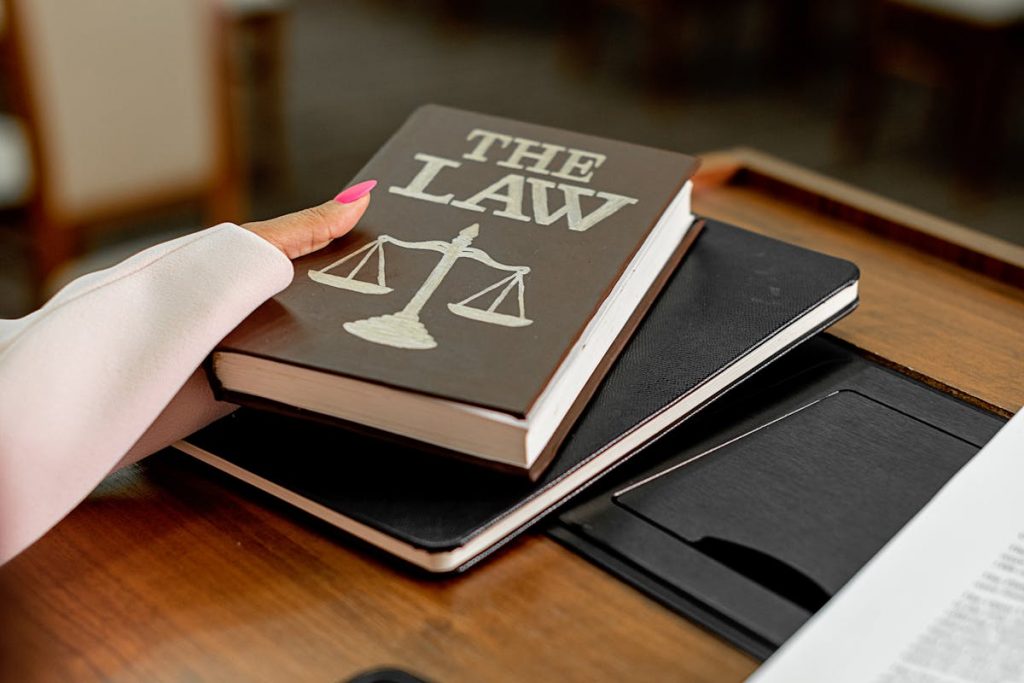The reduction or dismissal of misdemeanor charges is not a guarantee but a possibility contingent on a myriad of factors. It is an intricate dance between the severity of the crime, the defendant’s criminal history, and the strength of the legal evidence presented. This matrix becomes even more complex when we consider the impact of prosecutorial discretion and the efficacy of defense strategies. As the stakes are high, one must understand the mechanisms at work that can tilt the scales of justice. This invites a closer inspection of the factors that can influence the outcome of a misdemeanor charge.
Understanding Misdemeanor Charges
Misdemeanor charges, the less severe category of criminal offenses, often bewilder many individuals due to their complex nature. These charges are distinguished from felony charges based on the potential legal consequences and the severity of punishment. The misdemeanor classification can range from Class A to Class C, with Class A being the most severe.
An essential aspect of understanding misdemeanors lies in comprehending the associated legal consequences. These consequences, typically including fines and jail time, vary based on jurisdiction and the specific crime committed. A Class A misdemeanor, for instance, may result in up to a year in jail and significant fines, while a Class C misdemeanor might only yield a small fine.
One must also take into account the long-term effects of a misdemeanor conviction. Having a criminal record can limit employment prospects, housing opportunities, and even rights to certain licenses.
Key Factors Influencing Charge Reduction
Given the potentially lasting impact of a misdemeanor conviction, it’s natural to wonder about the possibility of charge reduction. Various factors play significant roles in determining the likelihood of such outcomes, among which charge severity and case context are essential.
Charge severity primarily pertains to the nature and seriousness of the crime committed. Less severe charges have a higher probability of reduction or dismissal. For instance, a petty theft charge may be more likely to be reduced than an assault charge, given the disparity in their potential harm to society.
Case context, on the other hand, involves the specifics surrounding the alleged crime. This can include the defendant’s prior criminal record, the presence of mitigating or aggravating circumstances, and the strength of the evidence against the defendant. Generally, a clean prior record, the existence of mitigating factors, and weak prosecution evidence can increase the chances of charge reduction.
Understanding these key factors is vital for those maneuvering the criminal justice system. However, each case is unique, and outcomes can vary widely, underscoring the need for professional legal counsel.
The Role of Prosecutorial Discretion
Shaping the trajectory of a misdemeanor case considerably, prosecutorial discretion emerges as a critical factor. This discretion allows prosecutors to decide what charges to bring forward, which can be influenced by a variety of factors.
- Prosecutorial priorities guide the decision-making process. If a prosecutor’s office has a specific focus, such as violent crimes or drug offenses, they may be less interested in pursuing minor misdemeanor cases to their fullest extent.
- The case backlogin the legal system can also impact prosecutorial discretion. With limited resources and an overwhelming number of cases, prosecutors may be more inclined to reduce or drop misdemeanor charges to manage their workload effectively.
- The strength of the evidence plays a significant role in prosecutorial discretion. If the evidence is weak or questionable, a prosecutor may decide not to move forward with charges or to negotiate a lesser charge.
- The defendant’s criminal history may also influence prosecutorial discretion. First-time offenders are often more likely to have charges reduced or dropped than repeat offenders.
- Finally, the public interest and community safety are always considerations. If a misdemeanor case has broader societal implications, a prosecutor may choose to pursue it more vigorously.
Impact of Defense Strategies
The implementation of defense strategies plays a pivotal role in the outcome of misdemeanor charges, potentially leading to their reduction or dismissal. These strategies often include the application of effective legal tactics and the negotiation of plea bargains. In the following discussion, we will explore how these defense mechanisms can influence the trajectory and final disposition of a misdemeanor case.
Effective Legal Tactics
Often, the outcome of misdemeanor charges can be considerably influenced by the implementation of effective legal tactics. The impact of such tactics can greatly depend on the specific mitigating circumstances of the case and the competency of legal representation.
The following are key strategies that can be used effectively to influence the outcome of misdemeanor charges:
- Factual Investigation: Thorough investigation of the case facts can often unearth evidence that could weaken the prosecution’s case or strengthen the defense.
- Legal Research: Detailed research into the relevant laws and precedents can provide opportunities to challenge the prosecution’s case.
- Motion Practice: Skillful use of motions can exclude damaging evidence, dismiss unfounded charges, or even reveal weaknesses in the prosecution’s case.
- Trial Skills: Exemplary trial skills can have a profound impact on the case’s outcome, from selecting a favorable jury to delivering persuasive arguments.
- Mitigation: Highlighting mitigating circumstances can result in reduced charges or even dismissal.
Negotiating Plea Bargains
Steering through the complex waters of plea bargains requires strategic maneuvering, often heavily influenced by the defense strategies employed. The process of plea negotiations is a critical stage in criminal proceedings, where the defense and prosecution come together to discuss potential charge agreements. This could result in a reduced charge, lesser sentence, or, in some cases, the dismissal of cases altogether.
A well-planned defense strategy can facilitate the plea negotiations by leveraging the strengths and weaknesses of the case. It is essential to remember that the prosecution must prove the defendant’s guilt beyond reasonable doubt. If the defense can cast a reasonable doubt on any element of the charges, it can greatly impact the plea negotiations. The defense team might present new evidence, challenge the prosecution’s evidence, or question the legality of the arrest and evidence gathering process.

Importance of Defendant’s Criminal History
The defendant’s prior criminal history plays a significant role in the outcome of misdemeanor cases. A careful examination of past criminal records provides essential insights into the defendant’s patterns of behavior and potential for recidivism. This information, in turn, greatly influences the court’s decision regarding the reduction or dismissal of current misdemeanor charges.
Assessing Past Criminal Record
A thorough evaluation of the defendant’s past criminal record plays a notable role in the outcome of misdemeanor charges. This assessment offers essential insights into the defendant’s history, providing an extensive context that can help determine the most suitable course of action for the case.
A review of past criminal records typically focuses on:
- Prior convictions: The number, severity, and nature of past offenses can notably influence the current case. A history of repeated similar offenses might lead to harsher penalties.
- Rehabilitation efforts: Courts often take into account whether the defendant has participated in rehabilitation programs or counseling, which can signify remorse and a commitment to change.
- Behavior during probation or parole: Compliance or violations during these periods can reflect the defendant’s willingness to adhere to legal norms.
- Time elapsed since the last conviction: A long period without criminal activity can indicate personal growth and a reduced likelihood of reoffending.
- Severity of past crimes: Prior convictions for serious offenses could lead to more severe sentencing for a current misdemeanor charge.
Influence on Charge Outcome
While the importance of a defendant’s criminal history in influencing the outcome of misdemeanor charges cannot be downplayed, it’s critical to understand how each factor can sway the court’s decision. A defendant’s prior convictions or lack thereof often shape the views of the prosecutors, judges, and even juries. This perception can greatly influence the decision to reduce or drop charges.
Recent legal trends also underscore the importance of a defendant’s criminal history. Courts often take into account the defendant’s past transgressions, the severity of those offenses, and the time elapsed since the last conviction. A defendant with a lengthy criminal record may face harsher penalties or less leniency in plea bargaining.
Public perception, another critical factor, is influenced by the defendant’s criminal history. The court’s decision, especially in high-profile cases, can be swayed by public opinion. A defendant with a checkered past might face a more severe judgment due to the public’s desire for justice. Conversely, a defendant with a clean record might receive a more lenient sentence, reflecting society’s belief in rehabilitation and second chances. As a result, a defendant’s criminal history greatly impacts the charge outcome.
Influence of Case Evidence and Witnesses
Evidence, like a silent arbiter, often plays a pivotal role in the outcome of misdemeanor charges, shaping the narrative that unfolds in court. The credibility of evidence, as well as the reliability of witnesses, can sway the decision of a judge or jury, possibly leading to reduced or dropped charges.
The following factors play an integral role in the evaluation of case evidence and witnesses:
- Evidence Credibility: This refers to the authenticity and veracity of the evidence presented. Evidence that lacks credibility may be dismissed, consequently weakening the prosecution’s case.
- Witness Reliability: The consistency and trustworthiness of a witness’s testimony can impact a case considerably. Inconsistent or untrustworthy testimonies may lead to skepticism.
- Corroboration: This involves the agreement of different pieces of evidence. Lack of corroboration may raise doubts about the prosecution’s claims.
- Chain of Custody: This refers to the process of handling evidence from the scene of the crime to the courtroom. Any break in this chain can cast doubt on the evidence’s credibility.
- Expert Testimony: Experts may be called upon to validate or dispute evidence. Their knowledge and impartiality can greatly influence the court’s view of the evidence.
Examples of Reduced or Dropped Charges
Frequently, in criminal justice proceedings, misdemeanor charges are reduced or even dismissed entirely due to various factors. Case outcomes can greatly differ based on the circumstances surrounding the crime, the evidence presented, and the defense strategy implemented.
Let’s consider a few illustrative examples. In one instance, a defendant charged with petty theft had his charges reduced to trespassing, a lesser offense. The legal team successfully argued that the defendant had mistakenly believed the property was his, resulting in a beneficial case outcome. In another example, a person initially charged with simple assault had the charges entirely dismissed. The dismissal was a result of collaborative efforts between the defense and prosecution to establish that the defendant acted in self-defense, a legal precedent that justifies forceful actions under specific conditions.
Yet another case saw a DUI charge reduced to reckless driving after the defense attorney questioned the validity of the sobriety tests administered by the arresting officer. These examples demonstrate the potentiality for charges to be reduced or dismissed, largely hinging on the specifics of the case and the strength of the legal argument presented.
Ways to Increase Chances of Charge Reduction
How can one improve the likelihood of a charge reduction in a misdemeanor case? This is a question often asked by those facing such charges. The answer is multi-faceted and depends on a variety of factors. However, there are a few general strategies that can potentially enhance your chances.
- Retaining a competent defense attorney: Legal counsel can navigate the complexities of the judicial system and argue effectively for a charge reduction.
- Community service: Voluntary participation in community service can demonstrate remorse and a commitment to rehabilitation, aspects that courts often consider favorably.
- Character references: Letters from respected community members vouching for your character can greatly influence the court’s decision.
- Negotiation with the prosecutor: This could involve plea bargaining, where you plead guilty to a lesser charge, reducing the severity of the potential sentence.
- Completion of rehabilitation programs: If the charge is related to substance abuse, completion of a rehabilitation program can indicate a sincere desire for change.
These strategies are not guarantees, but they can increase the likelihood of a reduced charge. It is critical to consult with a legal professional to discuss the best approach for your specific situation.
Frequently Asked Questions
What Are the Possible Penalties for a Misdemeanor Conviction?
Penalty types for a misdemeanor conviction range from fines to probation and jail time. Conviction consequences may also include community service, mandatory counseling, and a possible criminal record impacting future employment opportunities.
How Does a Misdemeanor Charge Affect Future Employment Opportunities?
A misdemeanor charge can affect future employment opportunities as it often shows up in background checks, raising employer concerns about reliability, trustworthiness, and potential liability, which might influence their hiring decisions unfavorably.
Can a Misdemeanor Charge Affect My Immigration Status?
A misdemeanor charge can indeed affect your immigration status. The immigration consequences vary depending on the nature of the misdemeanor. Expert legal representation is essential to navigate potential impacts on one’s immigration standing.
How Long Does a Misdemeanor Charge Stay on My Record?
A misdemeanor charge generally remains on your record permanently unless removed through the expungement process or record sealing. The duration varies by jurisdiction and the specific nature of the misdemeanor. Consult a local attorney for precise information.
Can I Appeal a Decision if My Misdemeanor Charge Is Not Reduced or Dropped?
Yes, you can appeal a decision if your misdemeanor charge is not reduced or dropped. The appeal process typically requires strong legal representation due to its complexity and the strict timelines often associated with it.





